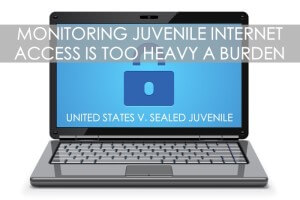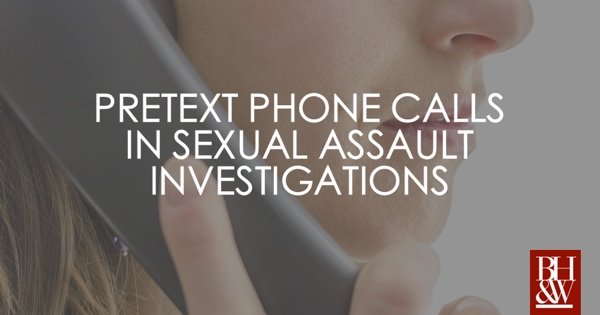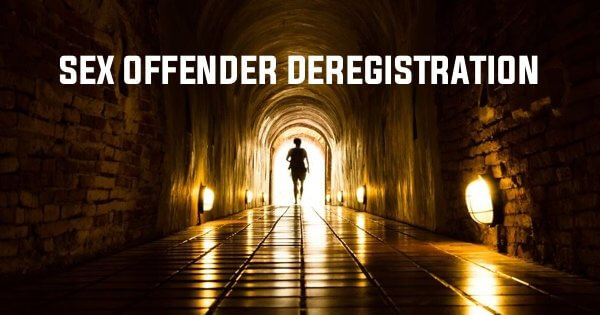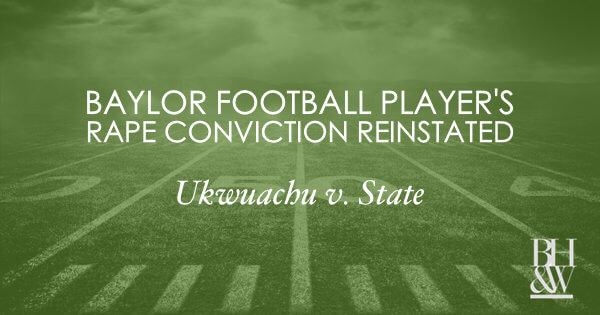In United States v. Sealed Juvenile, the 5th Circuit Court of Appeals discusses how much oversight is too much when it comes to juvenile sex offenses.
 Please note: This article discusses sexual abuse of a child. Generally speaking, the reason the court system treats juveniles differently from adults is because of the hope of rehabilitation and restoration of the juvenile offender to society. With everything from school to job searching on the internet these days, should juvenile sex offenders be able to be on the internet? Is strictly monitoring a juvenile sex offender’s internet usage, down to the keystroke, an imposition on constitutional rights, or is society providing oversight to a juvenile defendant with the hope of rehabilitation?
Please note: This article discusses sexual abuse of a child. Generally speaking, the reason the court system treats juveniles differently from adults is because of the hope of rehabilitation and restoration of the juvenile offender to society. With everything from school to job searching on the internet these days, should juvenile sex offenders be able to be on the internet? Is strictly monitoring a juvenile sex offender’s internet usage, down to the keystroke, an imposition on constitutional rights, or is society providing oversight to a juvenile defendant with the hope of rehabilitation?
A Juvenile Sexual Assault Occurs on a Military Base
While living with his family on a military base, a fifteen-year-old sexually assaulted a four-year-old. He was charged with violating 18 U.S.C. §§2241(c), 5032 (2012), “engaging in a sexual act with a person who had not attained the age of 12 years.” The juvenile defendant had a history of psychiatric illnesses, such as Oppositional Defiant Disorder and Bipolar disorder. He had a pattern of sending sexually explicit letters to classmates at school. Before sentencing the district court ordered a probation officer to render a special report, which concluded, “in the last year the juvenile’s problems transformed from being anger-oriented to being sexually-oriented.” In a plea agreement, the juvenile pleaded guilty to a lesser offense of “abusive sexual conduct with a minor who had not attained the age of 12 years,” violations of 18 U.S.C. § 2244(a)(5) (2012) and §5032.
The District Court Imposes Strict Sex Offender Conditions to Probation
The district court deemed the defendant a “juvenile delinquent” and sentenced him to eighteen months in a juvenile treatment facility and a term of juvenile delinquent supervision until he turned twenty-one. Further, the district court imposed four special conditions to his supervision
- a restriction on the defendant’s contact with children,
- choice of occupation,
- prohibition on loitering in specific places, and
- the use of computers and internet.
The juvenile appealed to the Court of Appeals for the Fifth Circuit, arguing that the district court had not provided adequate reasons for imposing the special conditions at the sentencing hearing, and failed to explain how the special conditions were reasonably related to the offense.
Under 18 U.S.C. § 3563(b), courts may place discretionary conditions on probation, so long as the conditions are reasonably related to the factors set forth in such deprivations of liberty or property and are reasonably necessary. In doing so, the sentencing court must consider the nature and circumstances of the offenses and the “history and characteristics of the defendant.” 18 U.S.C. § 3553(a)(1)(2) (2012).
The Big Issue Before the Fifth Circuit | Were the Special Conditions of Probation Reasonably Related to the Offense?
The big issue before the Fifth Circuit was whether the conditions imposed by the district court were reasonably related to the offense, and if so, were they reasonably necessary. Did the district court provide adequate reasons for imposing the four special conditions? As the case was a matter of first impression, the Court examined each special condition and concluded in a surprising manner with regard to the internet and computer use.
Condition One: Restriction on Contact with Children
Under the first special condition, the juvenile was “not to have contact with children under the age of sixteen without prior written permission of the Probation Officer.” Further, he was required to “report unauthorized contact with children to the Probation Officer.” On appeal, the juvenile argued that this special condition was a “much greater deprivation of liberty…than reasonably necessary.” However, the Court disagreed with the juvenile. “Considering the threat posed by the juvenile based on his conviction [and other noted behaviors on record], we affirm this condition.” Also noting that the juvenile could attend school with permission of the Probation Officer, the Fifth Circuit agreed with the lower court.
Condition Two: Choice of Occupation
Under the second special condition, the juvenile was “restricted from engaging in an occupation where he has access to children, without prior approval of the Probation Officer.” On appeal, the juvenile argued that the special condition was not reasonable and necessary because the offense was not related to work and that he would run a risk of never being able to be employed. The Court disagreed because the juvenile would be able to work upon prior permission from his Probation Officer. The Court affirmed the district court’s condition.
Condition Three: Prohibition on Loitering in Specific Places
Under the third special condition, the juvenile was not to “loiter within one-hundred feet of schools, parks, playgrounds, arcades, or other places primarily used by children under the age of sixteen.” The juvenile argued that the special condition was not reasonably related to his offense because his offense did not occur at a school. The Court disagreed. “The juvenile’s history of sending sexually explicit letters to girls at school means that he poses a threat to children at school.” The Fifth Circuit affirmed the lower court’s special condition.
Condition Four: Computer and Internet Use
Under the fourth special condition, the juvenile was (1) not to possess a computer with internet access without the prior approval of the Probation Officer; (2) to submit to searches under the direction of the Probation Officer that could include software scans of his technological devices; (3) to consent to a key logger on his personal devices and to consent to a search of each internet query; (4) to inventory and to provide receipts for all devices and bills pertaining to the internet and technology.
The juvenile argued that the restrictions on his computer and internet use were not reasonably related to his offense, and that the special condition would prevent him from job searching, completing homework, and emailing his therapists. The juvenile argued that even though he could access the internet, to do so would place a heavy burden on him to request permission each time he accessed the internet, or to report any misstep such as an errant search or a “pop up” on the internet.
The Fifth Circuit points out that the juvenile is mentally ill and needs some internet oversight. “We affirm the monitoring provisions because we recognize [they] ensur[e] that the juvenile complies with the restrictions against accessing sexually explicit materials.”
However, the Fifth Circuit agreed with the juvenile on some of the internet and computer usage restrictions. “We must recognize that access to computers and the Internet is essential to functioning in today’s society.” The Fifth Circuit ordered the district court to construe the special condition so that the juvenile does not have to request permission from a Probation Officer each time he accesses the internet, removing what the Court deemed “a heavy burden” on the juvenile. Next, the Court modified the special condition that required the juvenile to provide receipts and payment records to the Probation Officer, “because the purpose is to verify that there have been no payments to an internet service provider, and payment for proper use should be made by the juvenile…there is no other basis to justify the restriction imposed by the [special condition].”
In sum, while the Fifth Circuit mostly affirmed the district court’s holding, it made some significant modifications where technology is concerned. Speaking to the hope of future rehabilitation, the Court added, “the juvenile may seek modification to any of the conditions, and the district court may lessen the burden of the [special conditions] if [his] behavior improves over time.”










